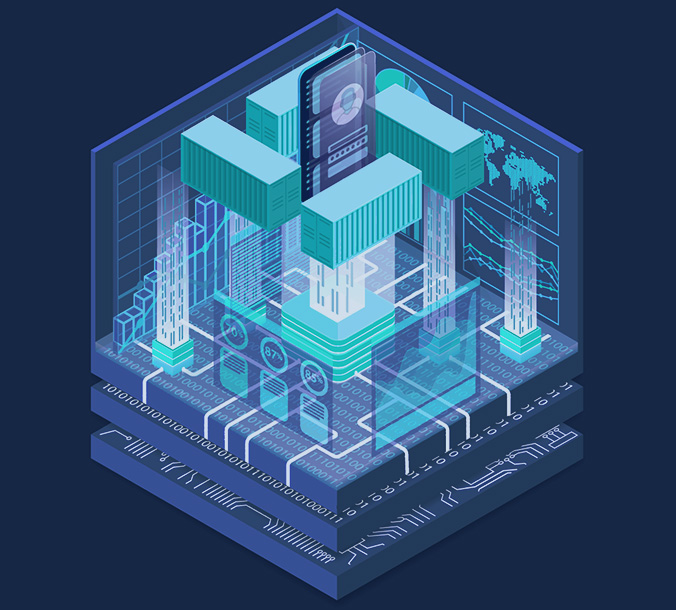Containerization
Build and Ship Apps Faster
Docker and Kubernetes solutions that modernize application deployment. Achieve portability and microservices scalability.

Containerization is a software implementation process that bundles an application’s code with all the files and libraries it needs to run on any infrastructure.
Traditionally, to run any application on your computer, you had to install the version that matched your machine’s operating system. For example, you needed to install the Windows version of a software package on a Windows machine. However, with containerization, you can create a single software package, or container, that runs on all types of devices and operating systems.
Applications are packaged with all necessary subsystems in a unique common container.
CS has rich experience in the implementation and integration of container services, based on the Kubernetes/Openshift platform, and orchestration through Gitlab/Jenkins/Ansible orchestration tools.
Benefits of containerization:
- Portability – software developers use containerization to deploy applications in multiple environments without rewriting the program code.
- Scalability – containers are lightweight software components that run efficiently. For example, a virtual machine can launch a containerized application faster because it doesn’t need to boot an operating system.
- Agility – containerized applications run in isolated computing environments. Software developers can troubleshoot and change the application code without interfering with the operating system, hardware, or other systems, thus shortening the development cycle.
